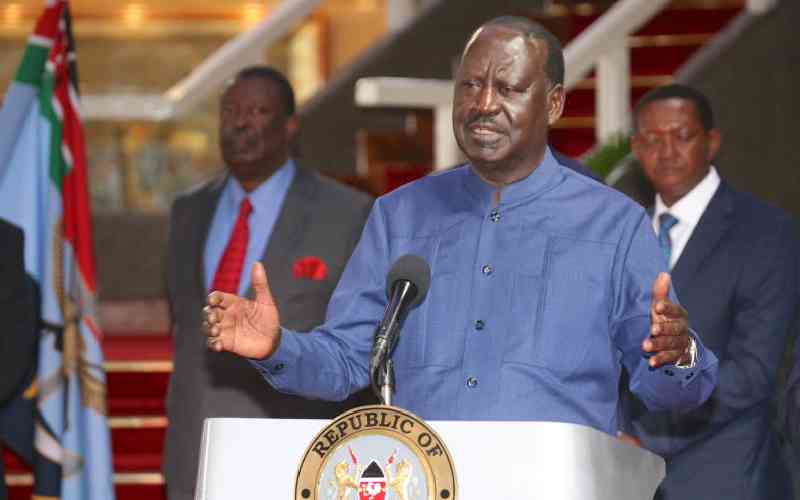×
The Standard e-Paper
Kenya’s Boldest Voice

Azimio la Umoja leader Raila Odinga's decision to push for dialogue to end the ongoing protests and disquiet against President William Ruto's regime has thrown his political career into uncertainty.
The latest move by Raila is a script that has been replayed in his political career for several years whenever he had a problem with past regimes.